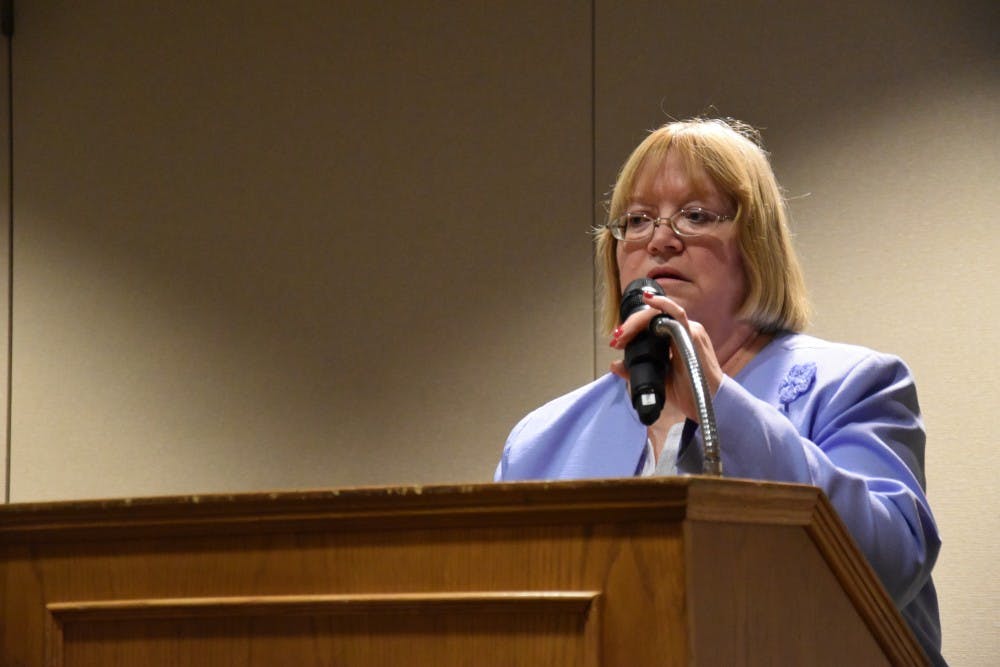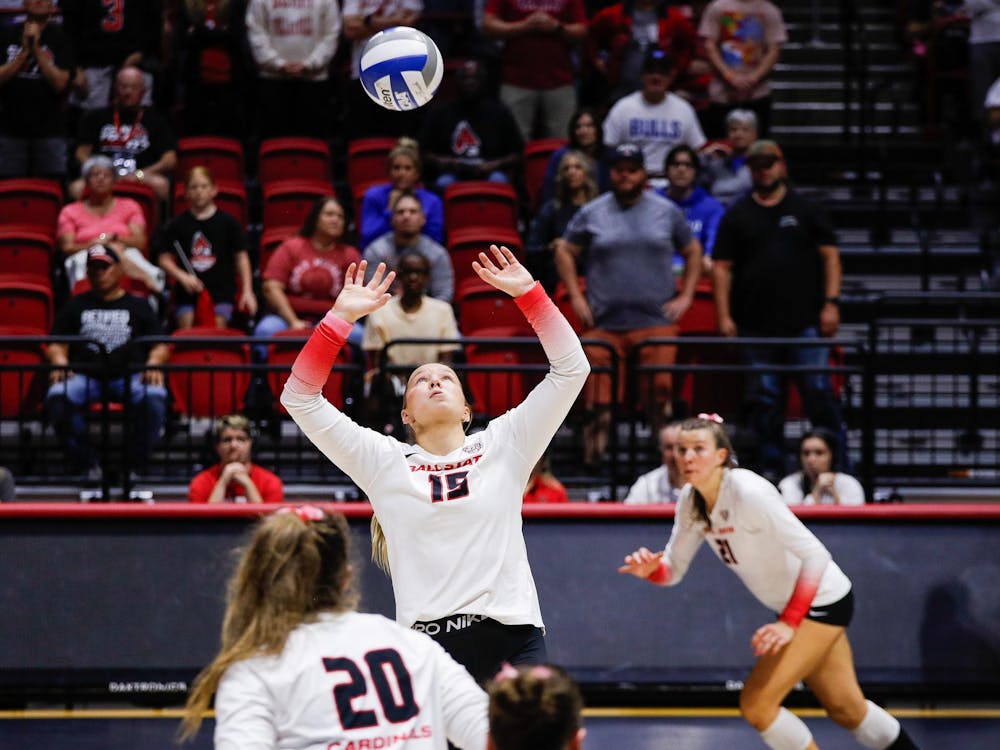President Trump’s executive order, Protecting the Nation from Foreign Terrorist Entry into the United States, states that citizens from Libya, Sudan, Somalia, Yemen, Syria, Iraq and Iran are prohibited from entering the United States for 90 days. The admission of refugees coming into the country is also suspended for 120 days.
The university's second public forum revolving around the effects of President Trump’s travel ban took place in the L.A. Pittenger Student Center Feb. 3, with some in attendance questioning the university’s response to the executive order.
Laurie Cox, the director of international student services at the Rinker Center, said she recommends international students at Ball State abstain from traveling out of the country in the next 90 days.
“No one at the university has any happiness about the situation although we can’t feel it exactly the way our affected folks have,” Cox said.
She added that the executive order has affected Ball State, and that the university will do everything it can to make sure this situation doesn’t become a "hardship" for those international students that are affected.
Acting Provost Marilyn Buck said the Ball State administration is "very concerned" and is working hard to keep the students informed.
“It’s a fluid situation,” Buck said. “We get updates and changes almost daily in terms of what’s going on.”
Buck, who often travels internationally, said having international students at Ball State creates a better atmosphere for learning and "contribute a great deal" to the campus as a whole.
Several questions were asked during the forum about the university's statement in response to the executive order, and some of the people in the crowd said they believed that the statement wasn’t strong enough.
Buck said the university has signed a statement from the Association of Public & Land-Grant Universities that is against the travel ban. She doesn’t know if the statement will be sent directly to the Trump administration or if it will be released publicly.
Currently the APLU has issued their statement along with a list of university statements regarding the executive order on their website. Ball State is listed, but the statement attached to it is the same one people described as "weak" at the forum.
Adam LeClerc, a junior public communications major, called the executive order a “gross” product of “fear” and believes it was poorly planned.
“Even if there are kernels of maybe benefits in it, it’s so poorly communicated it immediately feels like completely false or completely detrimental to our society,” LeClerc said.
He said he also wasn’t happy with the statement released by the university.
“Why is there this tip-toeing around their actual statement?” LeClerc said. “Why isn’t that more firm when they say they care about students?”
Andrew Alexander, a Ball State alumnus and Muncie resident, said he was happy that the university is working to help those students that are affected by President Trump’s executive order, but he also doesn’t believe the university's statement was strong enough.
“I do think it's harmful to higher education and if we don’t speak up now how will this continue to harm this country, higher education and just the moral fabric of this country,” Alexander said.
He cited Indiana University’s response as a good example and hopes Ball State will send out a stronger message to the Trump administration.
Alexander said he feels strongly about the issue because his father, who was a professor at Ball State, helped bring international students to the U.S. in the '70s. The Ball State alumnus also tutors international students in English.
“We are supposedly a country of decency and brotherhood from sea to shining sea and this is not what’s happening,” Alexander said. “What’s happening from the Trump administration is not supporting the values of America.”
President Trump’s executive order, Protecting the Nation from Foreign Terrorist Entry into the United States, states that citizens from Libya, Sudan, Somalia, Yemen, Syria, Iraq and Iran are prohibited from entering the United States for 90 days. The admission of refugees coming into the country is also suspended for 120 days.
According to the executive order, the Secretary of State and the Secretary of Homeland Security can add other countries to the ban list.
The travel ban itself has been approached with a string of lawsuits throughout the country, including a federal judge in Seattle ordering a nationwide halt to the order on Feb. 3.





